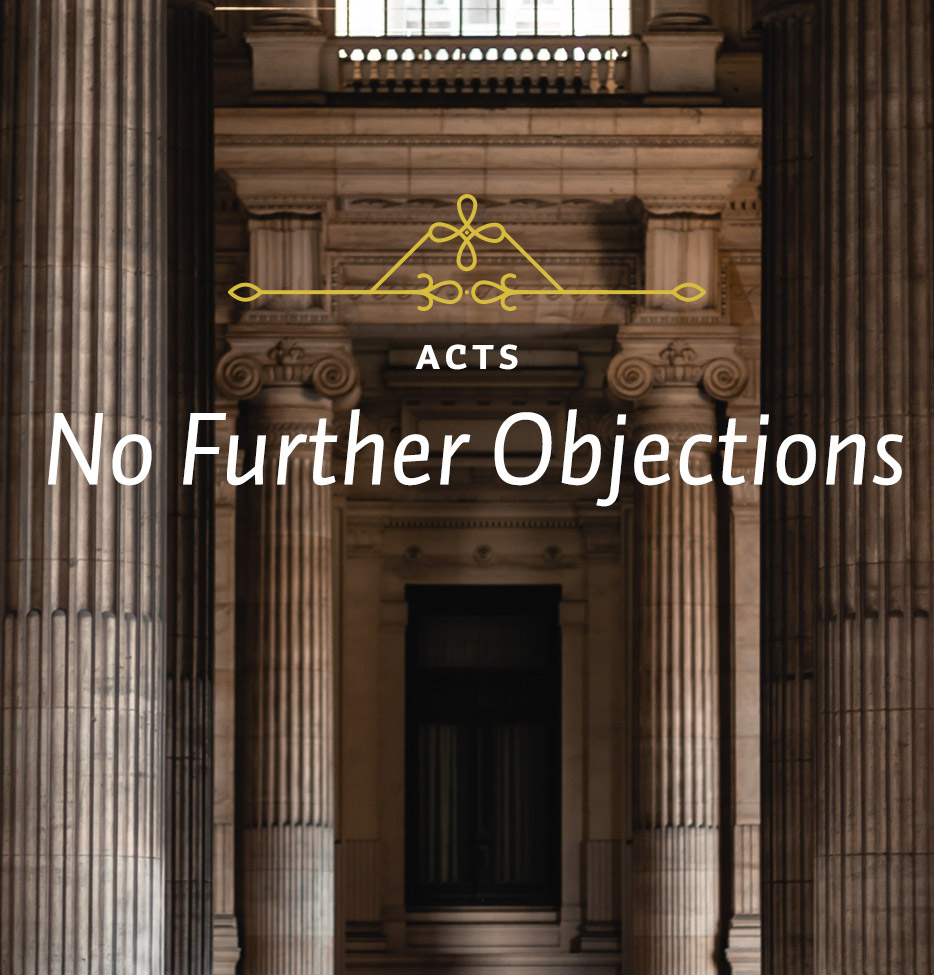It is interesting how Peter handled this controversy. Peter could have said, perhaps rightly, “I am an apostle; God speaks to me and through me. God told me that going to the house of these Gentiles was all right. So if you don’t like it, you can just leave my church.” Some Christian leaders do handle controversy in that way. But I notice that Peter did not do that. Peter was an apostle, but he did not flaunt his apostolic authority. Instead he began with a humble recitation of what happened. The Greek makes this particularly clear. It indicates that Peter began at the beginning and explained everything precisely—a very strong word—precisely as it happened.
If anybody questioned his particular presentation of the facts, well, there were the six brothers who had gone to Caesarea with him. They could say, as undoubtedly they did say, “It is exactly as Peter has reported.”
People often ask ministers: How does a person come to know the will of God? How does God lead people? How am I to know whether or not I should do this or do that? Some people think that God never gives guidance except through application of a specific Bible text. Others speak of open or closed doors. Some, like the great eighteenth-century evangelist George Whitefield, speak of “intimations.” Still others declare, “The Lord told me to do so and so.” It is a serious matter, worthy of some thought.
Here Peter tells how he was led.
1. Peter was praying (v. 5). That is an important starting point, isn’t it? It was a good preface to what Peter was going to say next too, since this was not a case of Peter simply having the notion pop into his head that now might be a good time to take the Gospel to the Gentiles or of his being caught off guard, as it were, when the Gentiles arrived in Joppa from Caesarea. No, Peter said, “I was praying. I was seeking the will of God. And it was while I was in that frame of mind, seeking God’s will, that God led me in this matter.”
More than twenty years ago, when I first came to Tenth Presbyterian Church in Philadelphia, I listened to a tape by Donald Grey Barnhouse on “How to Know the Will of God.” He made the point that God leads in three ways and that, when you get all three of these in line, then you can be sure that it is God who is leading you.
First, “You need to be willing to do the will of God even before you know what it is.” I think that is very important. Because God does not give options, allowing us to choose one or another or even choose whether we want to follow a specific course of action. He waits until we are ready to obey Him. Then he tells us what we should do.
Second,”God speaks through Scripture.”God never leads contrary to Scripture. So if we are to be led by God, we must be men and women of the Book. We must know it and understand its principles.
Third, “You need to look to God on a regular basis—daily and, at times, even hourly.” Barnhouse referred to Psalm 32:8, which in the King James Version says, “I will guide thee with mine eye.” Barnhouse said that if God is to guide us with his eye, He obviously must catch our eye. So we need to look to Him regularly through periods of personal Bible reading and devotion. It is the third of these points that Peter mentions first. He was praying, trying, as it were, to catch the eye of God to see the way in which God might lead him; and it was while he was in that frame of mind that God provided the new direction.






